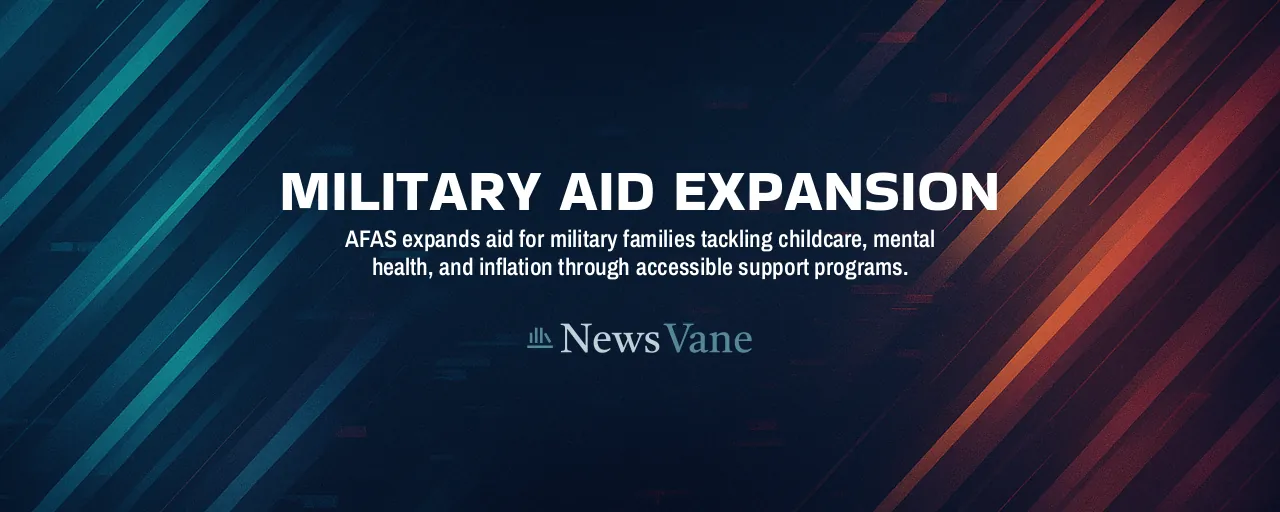A Lifeline for Military Families
Military life tests endurance. Airmen, Guardians, and their families juggle frequent relocations, unpredictable schedules, and rising living costs. The Air Force Aid Society (AFAS), the official relief arm of the U.S. Air Force and Space Force, has responded with a bold expansion of its financial assistance programs. Announced in June 2025, these changes aim to support service members and their loved ones through transitions and hardships.
The updates focus on accessibility and relevance. New grants address mental health, childcare, and adoption expenses, while a streamlined application process cuts through red tape. AFAS is adapting to the realities of military families, who face inflation-driven price hikes and relocation costs that strain budgets.
In 2024, AFAS delivered $14 million to over 15,000 families. Now, with broader aid categories and an easier system, the organization ensures active duty, Guard, Reserve, retirees, and eligible family members can access help quickly and efficiently.
Tailored Support for Real Challenges
The new programs zero in on specific needs. Grants now cover mental health counseling, adoption fees, domestic violence relocation, and furniture for new homes. These complement existing aid for rent, utilities, medical bills, and emergency travel. For families facing permanent change of station (PCS) moves, AFAS offers funds for vehicle shipments, overseas car rentals, and childcare, acknowledging the financial toll of frequent relocations.
Childcare remains a priority. The updated Give Parents a Break and Child Care for PCS programs let families choose trusted providers, even unlicensed ones like friends or family, and receive direct payments. A family relocating can access up to $1,000 to cover childcare, easing the burden during chaotic moves. Dinah Thomas, a seasoned advocate for military families, emphasized that this flexibility helps families of all ranks manage stress.
These changes stem from listening to families and support agencies. By aligning aid with everyday struggles, AFAS ensures its programs make a tangible difference.
Making Help Easier to Reach
Applying for aid used to be daunting. AFAS simplified this by combining its Falcon Loan and Standard Assistance programs into one online application. Whether seeking a no-interest loan or a non-repayable grant, families now navigate a single process. Submitting a military ID, PCS orders, or a budget worksheet completes the request.
Retired Chief Master Sgt. Kris McBride, who spearheaded the changes, stressed that reducing barriers leads to better support. The new system minimizes delays, ensuring timely help. Families can apply online or through Military and Family Readiness Centers, with clear instructions on required documents.
Weighing Views on Military Aid
The expansion prompts debate about military family support. Some, including analysts at the Heritage Foundation, prioritize mission readiness and self-reliance. They favor targeted aid, modest defense budget increases, and tools like Education Savings Accounts for military children, emphasizing fiscal discipline and choice.
Advocates for broader federal programs call for universal childcare vouchers and expanded emergency grants. They argue that comprehensive support boosts retention and fairness, particularly for junior enlisted families spending 30–40% of income on housing. A poll showing 93% public support for federal childcare aid for relocating families underscores this view.
Both perspectives recognize the financial strain from inflation, rising rents, and childcare costs of $200–400 weekly. AFAS's approach balances these ideas, offering practical relief while staying focused on immediate needs.
A Step Forward
The timing of AFAS's changes is critical. PCS moves, costing families $10,000 on average, disrupt jobs and schooling. Inflation has raised food prices by over 15%, and housing allowances lag behind rents in areas like San Diego by $300 monthly. Mental health demands are also climbing, with the Department of Defense expanding access through telehealth and the Brandon Act.
AFAS collaborates with base agencies, nonprofits, and other relief societies to create a robust support network. Its emphasis on flexibility, like childcare stipends for trusted providers, shows a commitment to practical solutions.
For service members, these updates offer relief and reassurance. They reflect an organization attuned to the challenges of military life, helping families stay resilient. Whether these efforts can meet rising demands remains to be seen, but AFAS is laying a strong foundation.
